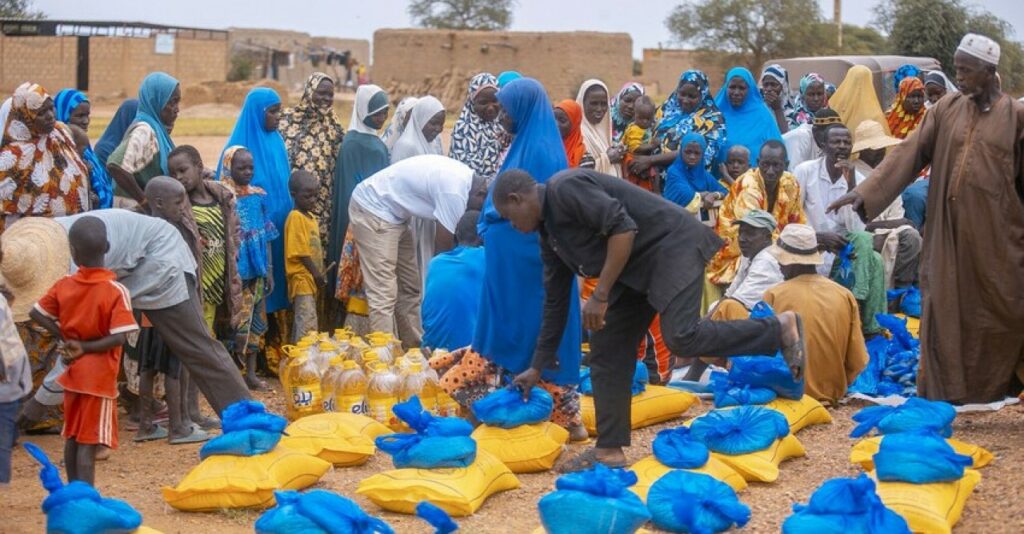Niger is in the grip of the worst hunger crisis seen in decades, with 4.4 million people – 18% of its population – in need of urgent humanitarian assistance, twice as many as last year.
Increasingly erratic rainfall and longer dry seasons mean that many parts of the country have not had a good harvest for years. Temperatures are rising 1.5 times faster here than the rest of the world, leading to a cycle of droughts. Until the rains come, no planting can be done.
Sadou Midou lives in Tillabéri which is one of the worst affected regions in the country. She and her family are surviving on one meal a day and she often goes without to ensure her children can eat. “Children cry when they are hungry. Adults can make do with what little they have, but children need food to satisfy them.”

According to a rapid needs assessment conducted in July 2022 by Plan International, 61% of adults in the regions of Tillabéri and Tahoua say that have gone without food in order to give more to their children.
“Every child should have their own plate, but this is not possible. All the food is put on one plate and we eat together because there is not enough to go around. My children only eat once a day when there is not enough food. Sometimes we sleep on an empty stomach,” Sadou explains. Girls and women are usually the ones most affected by food shortages, with girls often eating less and last. Not only do they have less access to food, but they are more likely to be taken out of school, some never returning, and are vulnerable to child labour, early and forced marriages and sexual exploitation.
Sadou is a widow who is bringing up her children alone. “My husband died a long time ago. Today my only activity is collecting wood and working in households to support my children. My oldest boy is 25. He’s pretty smart. He helps us by looking for food, then we can eat together.”
Despite the challenges she faces, Sadou is determined that her younger children should stay in school – often children drop out during times of droughts and food shortages to help their families find food and water or to search for work.
“We push them, we motivate them, to make them study. If the child becomes a great person, then we can rest. They will be happy and we will be proud,” explains Sadou adding that when children are hungry they have no energy to study. “How can they learn on an empty stomach?”
Another issue Sadou faces is finding water. She often has to walk long distances to locate a clean source of drinking water. What little she is able to bring home has to be rationed. “We do not have enough water for our needs. When we find a little, we only use it for the essentials.”
Plan International is scaling up our emergency response in Tillabéri, Tahoua and Diffa regions to reach the most affected households with cash and voucher assistance and food rations.
Sadou recently received rice, beans, vegetable oil and salt from the organisation which she says has been a huge help. “We are happy today, we got food, oil and beans. We say thank you very much.”
When asked what additional assistance she needs, Sadou is quick to tell us. “I don’t hesitate to ask for food to feed my children. We want Plan International to bring us food, to bring us millet, to install a borehole pump so we can access the water that we have here, because we really need it.”